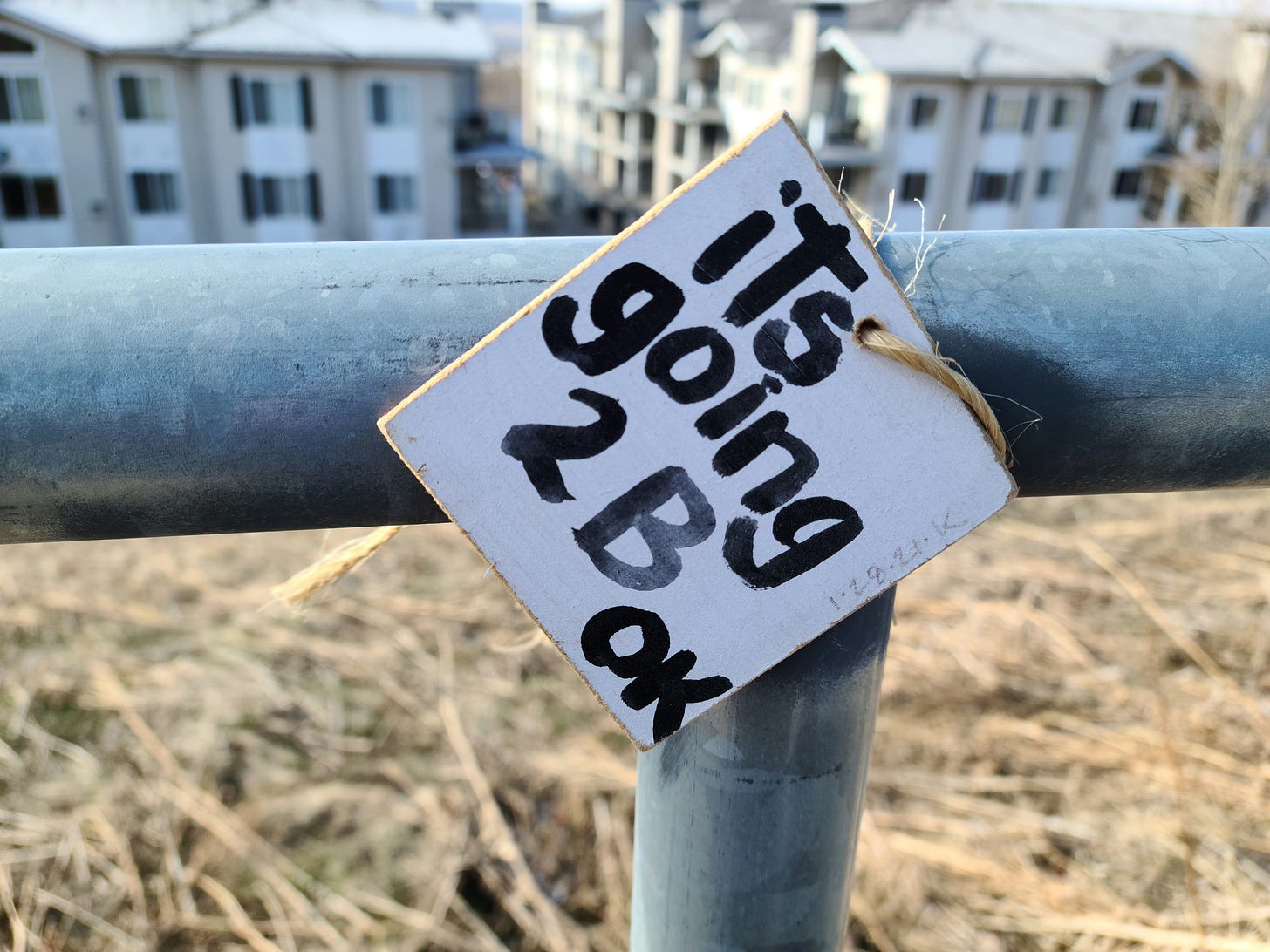Absurd Things People Say When Someone is Grieving
Please don't believe for a second that you're doing it wrong
Welcome to the very first installment of Grief Notes. I’m glad you’re here even if the reason is because you’ve lost someone you love.
May this newsletter help you find your footing and find kinship with others traveling the same road.
Let’s touch on absurd things people say to those who are stuck in the mud puddle of grief. Especially those of us who are fresh in our journey.
You WILL encounter the discomfort of people who think they know what’s best for you.
Please take it all with a grain of salt because nobody could possibly know how you feel nor where you “should” be in your process. The only thing you need to do is YOU.
Perhaps the stupidest thing I’ve heard from more than one outsider is:
“You need to push yourself.”
No….you don’t.
You need to do exactly the opposite and give yourself the gift of time, even if you’re moving at a snail’s pace.
The first time someone told me I need to push myself was less than a year after losing my only child. It was a stranger who uttered the words and I believe he was attempting to hit on me. Poor guy.
To me his statement came across like, “If you would just get over yourself and your emotions there would be space for new romance in your life.”
First of all, I’m dead inside. Dating comes in dead last on my list of things to do.
The second time I heard it was from a faraway friend I haven’t seen in years. She also told me I need to push myself to get out of my funk.
To me it came across like, “Just buy a plane ticket and fly across the country so we can have some fun, like old times.”
Right now, old times are a clouded, vague memory. No one can fully understand how my life has been sliced into two distinct segments: Before my son died and after he died.
The Kristi before and after those two slices of pie are two wholly different individuals.
I’m not looking for fun times yet, I’m not looking for life partners, I’m not looking for anything but a simple meditation session on my yoga mat. Period.
So, people who tell you to push yourself need to be shelved for a while because they have zero insight into how you’re feeling and where you’re at.
You may also encounter people who think they hurt worse than you.
Lately, I’ve been trying my best to support a good friend who very recently lost her husband. His sudden death was a devastating blow to all of us but my first thoughts gravitated toward his mother.
I can 100% relate to a mother who has lost her son.
You know that saying, “Hurt people hurt people”?
During a supportive conversation I had with the wife, she inadvertently said something about the bereaved mother that was hurtful to me and to all parents who have lost a child.
She said, “Sure, she lost a kid but I lost a husband.”
Of course, I didn’t unleash the wrath of a woman who carried a child for nine months, raised him for decades, and had hopes and dreams for his long and fulfilling life.
That would have made me an a$$hole.
But I don’t think she truly understood the weight of her words. Especially words being delivered to a mother who just “lost a kid.”
For everyone who has endured significant loss, it is an incredibly personal journey. One that nobody can comment on because they are not us.
My adopted sister, who lost half her family in the Rwandan genocide, has said to me that my loss is greater simply because he was my child.
I disagree.
Loss is loss, no matter how it happens or who it happens to. If somebody loved the person they lost it is their own pilgrammage.
What are some things you’ve heard in your grief journey that came across as completely absurd? Let’s talk about it.





I could easily forgive almost all of the klutzier remarks people made to me after my husband's sudden death at age 54. Including the weirdly voyeuristic one when a colleague asked me how I was doing and I responded, "Okay" — because we at a work meeting and that's no time to lose it. Her response? "Well, you're still in shock." Oh, goody, I thought: I don't feel shitty enough already, it's going to get worse? That was certainly not her intention. The one remark that struck me as truly dark was from a woman whose police officer husband had been murdered decades previously. We barely knew one another; she approached me after a public meeting, put a hand on my arm and said, "You think it'll get better. It never does." Which I have since found to be untrue and passively hostile.
I appreciated this, as someone who has surely stuck my foot in my mouth without realizing it when it came to offering condolences. It seems there really is no great "convention" for comforting a grieving person. Each case is individual. Each grief is unique. You can say you are sorry, and that you are here for them, and you're listening. It's hard in its own way, every time.